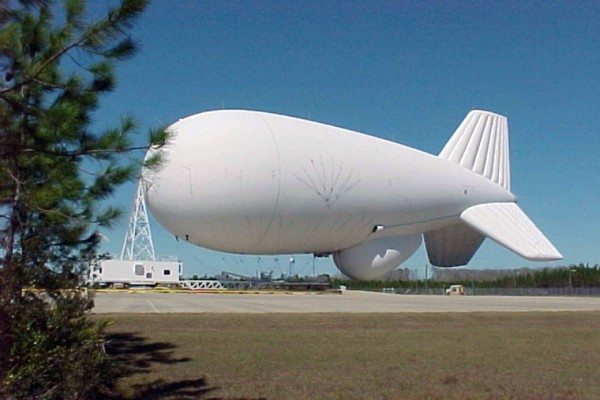Raytheon Company’s Joint Land Attack Cruise Missile Defense Elevated Netted Sensor System (JLENS) recently completed Demonstration Test 1 (DT-1), proving its ability to track targets and integrate with fire control and tactical data link systems.
A series of demonstration tests were conducted at the Utah Training and Test Range from early November to mid-December 2011. The test included tracking moving ground and surface water targets.
“The monthlong DT-1 demonstrated JLENS’ maturity to track low-flying cruise missile surrogates, unmanned aerial vehicles, fighter aircraft and moving surface targets, and to integrate with air and missile defense systems,” said David Gulla, vice president of Global Integrated Sensors at Raytheon’s Integrated Defense Systems business.
Communicates Targeting Data and Identifies Friend or Foe
“In addition to detecting and tracking targets, the system demonstrated its ability to communicate targeting data over command and control systems, such as Link-16, and interface with combat identification support systems, such as IFF (Identify Friend or Foe), to discriminate between friendly and hostile aircraft and missiles,” said Mark Rose, program director for JLENS with Raytheon Integrated Defense Systems.
Providing a joint service capability, the JLENS system consists of two tethered 74-meter aerostats. One aerostat elevates a surveillance radar to 10,000 feet, providing 360-degree coverage out for hundreds of miles over land and sea. The other aerostat elevates a fire-control radar. Each of the aerostat platforms has the capability to integrate other communications and sensor systems.
During live-fire tests later this year, JLENS will demonstrate its ability to detect airborne threats and transmit targeting data to surface-based air and missile defense systems that will engage test targets. In the meantime, testing continues in Utah and at White Sands Missile Range, N.M.
Raytheon Company, with 2011 sales of $25 billion, is a technology and innovation leader specializing in defense, homeland security and other government markets throughout the world. With headquarters in Waltham, Mass., Raytheon employs 71,000 people worldwide.










